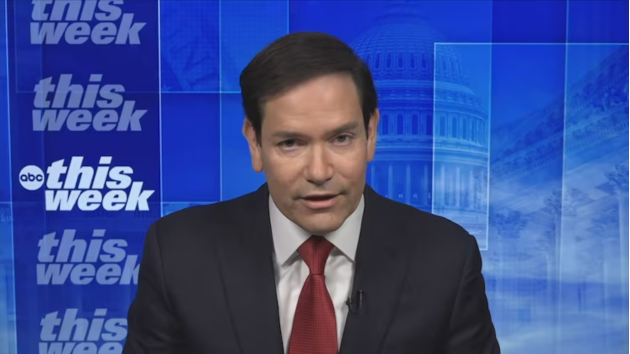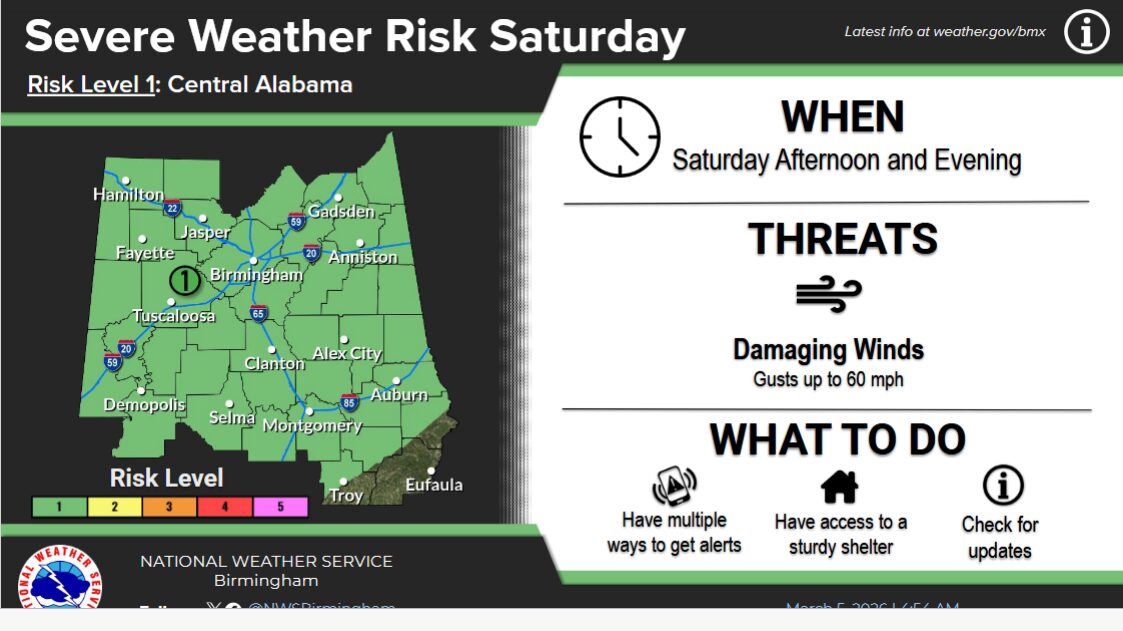
(NEW YORK) — Secretary of State Marco Rubio said Sunday that both Russian President Vladimir Putin and Ukrainian President Volodymyr Zelenskyy must make concessions to achieve a peace deal.
“You can’t have a peace agreement unless both sides give and get. You can’t have a peace agreement unless both sides make concessions,” Rubio told ABC News’ “This Week” co-anchor Martha Raddatz. “If not, it’s just called surrender, and neither side is going to surrender, so both sides are going to have to make concessions.”
On those concessions, Rubio said the United States did ask Putin to make them; however, when it comes to sanctions, the Trump administration believes that as soon as it levies additional sanctions to those already in place, the negotiations will halt.
“Of course, concessions were asked, but what utility would there be of me going on a program and tell you, ‘We’ve wagged our finger at Putin and told him, “You must do this,” and “you must do that.”‘ It’s going to make — it’s only going to make it harder.”
“The problem is this: The minute you levy additional sanctions, strong additional sanctions, the talking stops. Talking stops. And at that point, the war just continues,” he said.
“Now, we may end up being at a point where we have to do that, where there is no other recourse, and that’s the end. By the way, there already are sanctions on Russia. The President hasn’t lifted any sanctions on Russia. They’re already facing sanctions, severe sanctions, and they’re facing ones from the Europeans as well. So we may very well reach a point where everyone concludes, ‘no peace is going to happen here, we’re going to have to do more sanctions.'” Rubio said. But if it comes to that, the secretary added, “You are basically walking away from any prospect of a negotiated settlement here, which is what everyone is asking us to do.”
While Russia has publicly taken issue with Ukraine’s demand for security guarantees as part of a peace deal, Rubio suggested that the United States believes that Ukraine is justified in its request, calling it “very reasonable.”
On the other hand, Rubio suggested that the United States believes that Ukraine is justified in their request for security guarantees, calling it a “very reasonable” request.
“We do know that Ukraine has said repeatedly and publicly talked about is security guarantees. They need to be able to enter into security guarantees that ensure that this is never going to happen again, that they’re not going to get re-invaded in two and a half or three years or four years or whenever it may be,” Rubio said. “That’s something we’re working on. And that’s something the Russian side has to understand, obviously, is that as a sovereign country, Ukraine has a right, like every sovereign country, to enter into security alliances and agreements with other countries.”
Rubio also indicated that Trump’s position on the war in Ukraine hasn’t changed after Friday’s summit and that Ukraine’s involvement is essential for a peace deal.
“I don’t think his mind has changed at all. I think ultimately, if this whole effort doesn’t work out, then there is going to have to be additional consequences to Russia. But we’re trying to avoid that by reaching a peace agreement,” Rubio said.
“We’re not at the precipice of a peace agreement. We’re not at the edge of one. But I do think progress was made,” he continued.
Trump had said before the summit that he wanted a ceasefire and for the killing to stop and there would be consequences if it didn’t.
In a subsequent interview on “This Week,” President Joe Biden’s former national security adviser Jake Sullivan pointed to the president’s goal before the summit to argue that since it wasn’t achieved, the summit was unsuccessful.
“President Trump’s stated goals were very simple, get an immediate ceasefire, and in the absence of a ceasefire, impose what he called severe consequences,” Sullivan said. “Well, the summit has come and gone. There is no ceasefire. There are no consequences. Meanwhile, President Putin has a simple goal. Keep the war going without facing further economic pressure from the United States. And he has achieved both of those goals on an open-ended basis.”
Sullivan also disagreed with Rubio’s position on sanctions, saying increasing them now would actually give the U.S. leverage.
“One thing that I think Secretary Rubio has backwards is the idea that additional pressure would hurt diplomacy. From my perspective, part of the reason that Putin came to Alaska is because he’s worried about the possibility of pressure. And if President Trump were prepared to escalate sanctions, squeeze Putin harder, I believe it would give him leverage to bring this war to an end more rapidly,” he said, adding that he hopes Zelenskyy and other European leaders traveling to Washington Monday will press Trump on this issue.
But Rubio did stress that a peace agreement can’t be achieved if only one side is involved in the talks — something Ukraine has stressed as well — and he said it’s the U.S.’s objective to bring both nations together.
“You’re not going to reach a ceasefire or a peace agreement in a meeting in which only one side is represented. That’s why it’s important to bring both leaders together, and that’s the goal here,” Rubio said.
Rubio said that details of Trump’s meeting with Putin will not be disclosed.
“These peace agreements and negotiations — they don’t work when they’re conducted in the media, either through leaks or through lies,” Rubio said.
Copyright © 2025, ABC Audio. All rights reserved.



